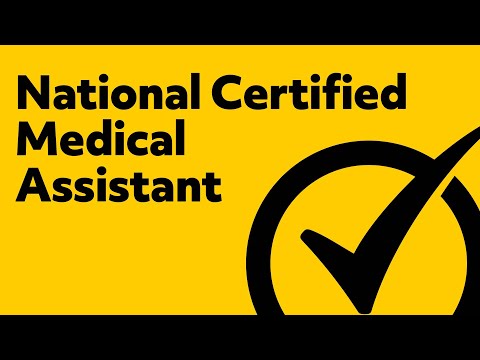Everything You Need to Know About Becoming a Medical Assistant
Contents
- Deciding if a career as a medical assistant is right for you
- The educational requirements for becoming a medical assistant
- The skills you need to succeed as a medical assistant
- The different types of medical assistant roles
- The best way to get started in your medical assistant career
- The outlook for medical assistants and job opportunities
- The challenges you may face as a medical assistant
- The rewards and satisfaction you can expect as a medical assistant
- 10 things you should know before becoming a medical assistant
- A day in the life of a medical assistant
Medical assistants are vital members of the healthcare team. They perform a variety of tasks to support doctors and other medical professionals.
If you’re thinking of becoming a medical assistant this guide will tell you everything you need to know. From job duties and responsibilities to education requirements and job outlook, we’ve got you covered.
Checkout this video:
Deciding if a career as a medical assistant is right for you
Medical assistants are vital members of the healthcare team. They are the link between the doctor and the patient. They take care of administrative tasks and clinical tasks. They perform many different duties in a variety of settings, such as hospitals, clinics, doctors’ offices, and even in patients’ homes.
Medical assistants must be able to multi-task and be organized. They need to have good people skills because they will be interacting with patients on a daily basis. If you are thinking about becoming a medical assistant, there are a few things you should consider before making your decision.
First, you need to make sure that you have the personality for the job. Medical assistants must be compassionate and caring. They need to be able to handle stress well. They also need to be able to work well under pressure.
Next, you need to make sure that you have the physical ability to do the job. Medical assistants must be able to stand for long periods of time and lift heavy objects from time to time. They also need to have good hand-eye coordination because they will be using medical equipment on a daily basis.
Finally, you need to make sure that you have the educational requirements for the job. Most medical assistants have at least a high school diploma or equivalent. Some medical assistant programs may require that you have some basic college coursework as well.
The educational requirements for becoming a medical assistant
There are many ways to become a medical assistant, but most employers prefer to hire candidates who have completed an accredited training program. These programs typically last one year or less and can be found at community colleges, vocational schools, and online schools. Some medical assistants may choose to earn a two-year associate degree in medical assisting, but this is not always necessary.
Once you have completed a training program, you will need to pass the Certified Medical Assistant (CMA) exam administered by the American Association of Medical Assistants (AAMA). This exam covers topics such as Medical Terminology human anatomy, and physiology. Once you have passed the CMA exam, you will be eligible for certification by the AAMA.
While certification is not always required, it may give you a competitive edge when applying for jobs. Employers often prefer to hire certified medical assistants because they know that these candidates have the knowledge and skills necessary to be successful in the role. In some states, certification may also be required in order to perform certain tasks, such as taking X-rays or administering injections.
The skills you need to succeed as a medical assistant
Medical assistants are in high demand across the U.S.A. In order to be successful in this career, you will need to have certain skills and qualities. Below are some of the skills you need to possess to excel as a medical assistant:
The different types of medical assistant roles
Medical Assistants (MAs) are multi-skilled health professionals specifically trained to work in outpatient settings such as medical offices and clinics. They perform both clinical and administrative tasks, such as taking and recording patients’ vital signs and medical histories, completing insurance paperwork, scheduling appointments, running errands, drawing blood, and more.
There are several different types of medical assistant roles, each with its own set of responsibilities. MA roles can be broadly classified into the following categories:
-Clinical medical assistants
-Administrative medical assistants
-Billing and coding specialist medical assistants
-Laboratory medical assistants
-Transcriptionist medical assistants
To learn more about the specific duties of each type of MA role, check out our in-depth guide to medical assistant responsibilities.
The best way to get started in your medical assistant career
There is no one “right” way to become a medical assistant. Some people choose to get their training through a certificate or diploma program at a vocational school, while others may opt for an associate’s degree at a community college. And there are even some online programs that offer medical assistant training.
So how do you know which path is right for you? The best way to figure out how to become a medical assistant is to first understand what the job entails. Medical assistants perform many different tasks, from taking patient medical histories and scheduling appointments to handling insurance paperwork and coding medical records Consequently, they need to be proficient in both clinical and administrative tasks.
The scope of practice for medical assistants varies from state to state, so it’s important to check your state’s regulations before enrolling in a training program. In some states, medical assistants may be allowed to perform more advanced tasks, such as giving injections or taking X-rays, while in other states these tasks may be reserved for licensed healthcare professionals.
Once you have a good understanding of what medical assistants do and what the requirements are in your state, you can start researching training programs. As you compare programs, look for ones that are accredited by either the Commission on Accreditation of Allied Health Education Programs (CAAHEP) or the Accrediting Bureau of Health Education Schools (ABHES). These accrediting bodies ensure that programs meet certain academic and clinical standards.
It’s also important to make sure that the program you choose will prepare you for the Medical Assistant Certification Exam (MACE). This exam is offered by the Certifying Board of the American Association of Medical Assistants (AAMA) and passing it is required for certification in most states. Once you have completed your training and passed the MACE, you will be well on your way to starting your career as a medical assistant!
The outlook for medical assistants and job opportunities
Medical assistants are in demand and the job outlook is very positive. There are many reasons for this, but the main one is that medical assistants perform a variety of tasks that make them indispensable to doctors and nurses. They also work in a variety of settings, including hospitals, clinics, and private physician offices.
The job outlook for medical assistants is very positive. In fact, the Bureau of Labor Statistics projects that the occupation will grow by 29 percent from 2016 to 2026, which is much faster than the average for all occupations. This growth is due to several factors, including an aging population and an increased emphasis on preventive care.
The challenges you may face as a medical assistant
While a career as a medical assistant can be immensely rewarding, it’s important to be aware of the potential challenges you may face. Here are some of the most common challenges medical assistants report:
1. Dealing with emotionally charged situations: As a medical assistant, you will often be dealing with patients who are facing difficult situations. It can be emotionally challenging to remain calm and professional in these situations.
2. Working long hours: Medical assistants often work long hours, including evenings and weekends. This can make it difficult to maintain a healthy work-life balance.
3. Dealing with difficult patients: Some patients can be demanding or rude. It’s important to remember that these patients are usually dealing with a lot of stress and may not be acting intentionally.
4. Handling sensitive information: As a medical assistant, you will have access to sensitive patient information. It’s important to maintain confidentiality and handle this information responsibly.
5. Dealing with insurance companies: Insurance companies can be frustrating to deal with, especially when it comes to getting claims approved. Medical assistants need to be patient and persistent when dealing with insurance companies.
The rewards and satisfaction you can expect as a medical assistant
When you become a medical assistant, you can expect to enjoy a challenging and rewarding career. You will be working closely with patients, physicians, and other healthcare professionals to provide high-quality care. In addition to the satisfaction of knowing you are helping others, you can also expect to enjoy a good salary and benefits package as a medical assistant.
10 things you should know before becoming a medical assistant
1. You will be required to wear scrubs.
2. There are procedures you will have to perform that may make you squeamish.
3. It is a physical job – you will be on your feet a lot and lifting patients.
4. You need to have a high school diploma or equivalent.
5. Specific training is not required, but most employers prefer candidates with a medical assistant certificate or diploma from an accredited program.
6. Certification is not required, but it may help you get a job and advance in your career.
7. You need to be able to type at least 30 words per minute and have basic computer skills.
8. You must be able to multitask and stay organized in a fast-paced environment.
9. You should have excellent customer service skills and bedside manner as you will be interacting with patients on a daily basis.
10. The median annual salary for medical assistants was $34,800 in May 2019, according to the Bureau of Labor Statistics (BLS).
A day in the life of a medical assistant
While the day-to-day duties of a medical assistant can vary depending on the employer, there are some core tasks that are common in most positions. Medical assistants typically work in doctor’s offices, hospitals, and other healthcare facilities. They may be responsible for handling administrative duties such as scheduling appointments, answering phones, and managing Medical records They may also be responsible for clinical duties such as taking patients’ vital signs, preparing them for examinations, and assisting the doctor during appointments.







